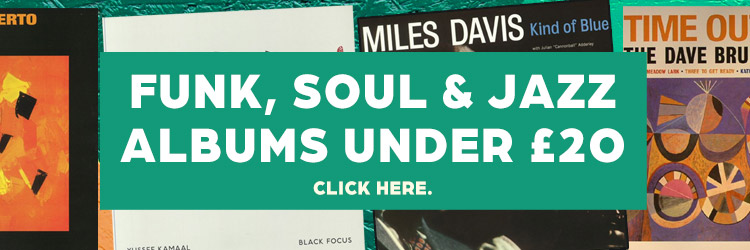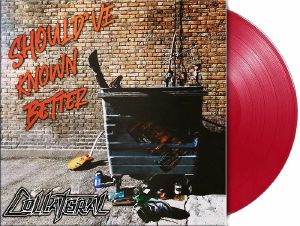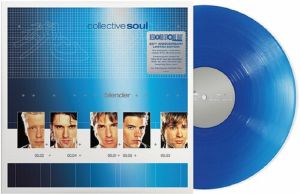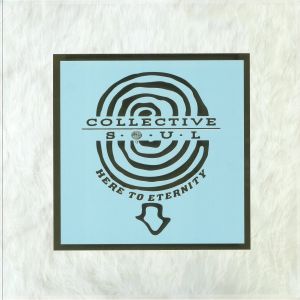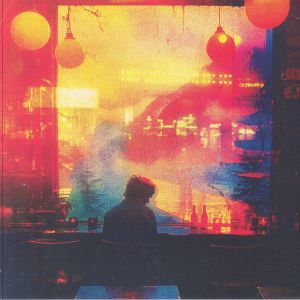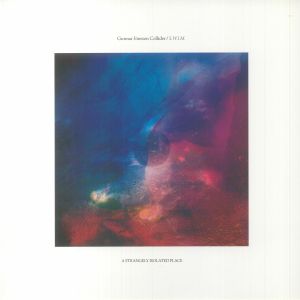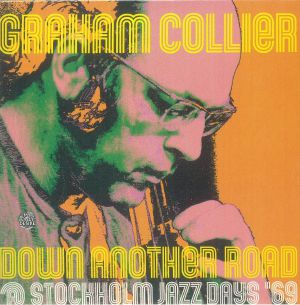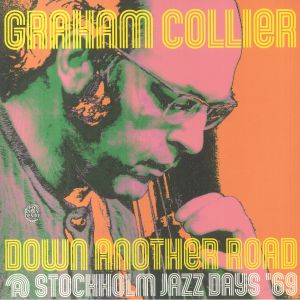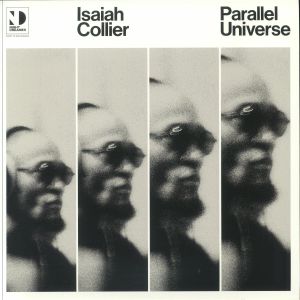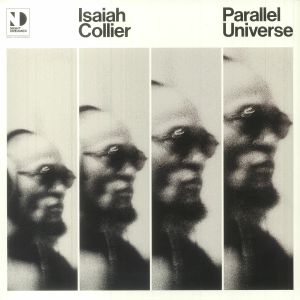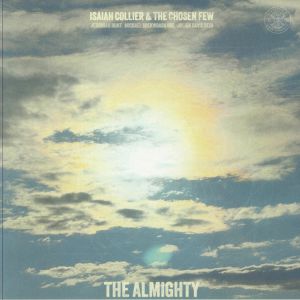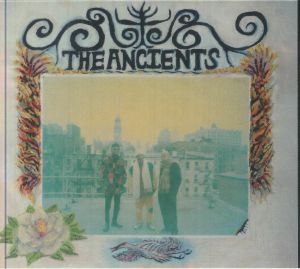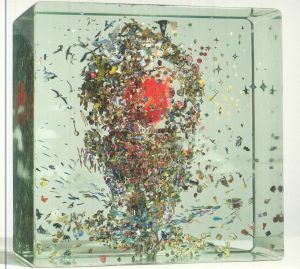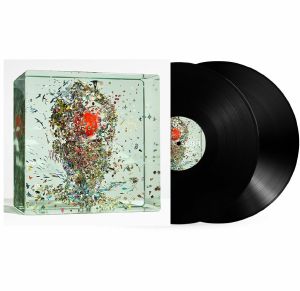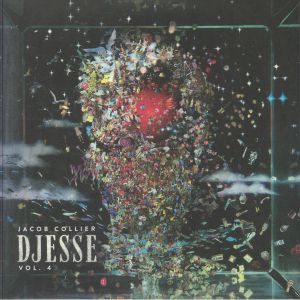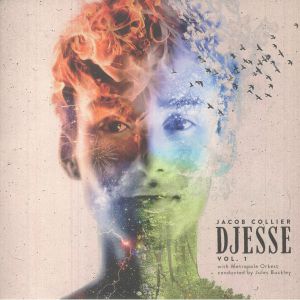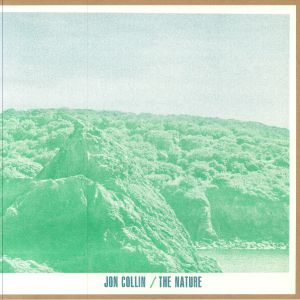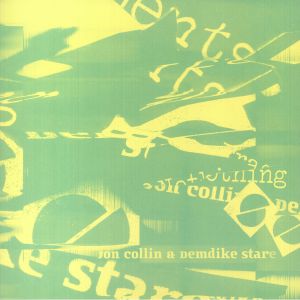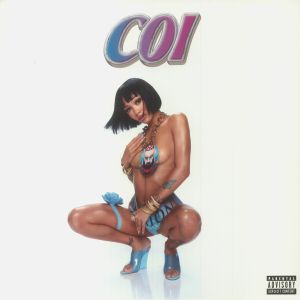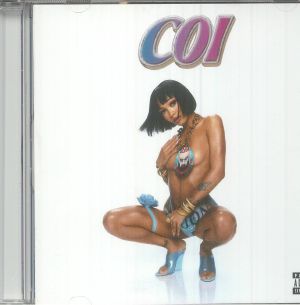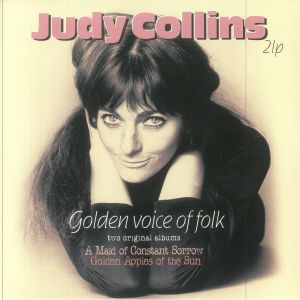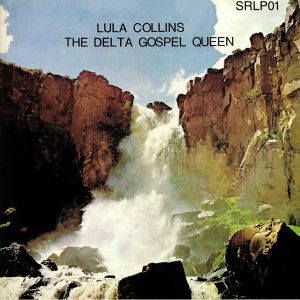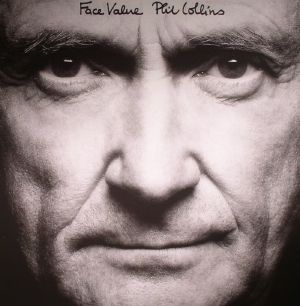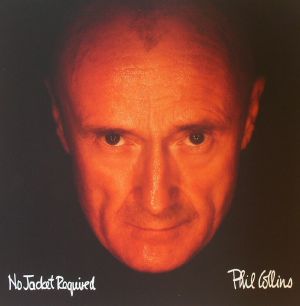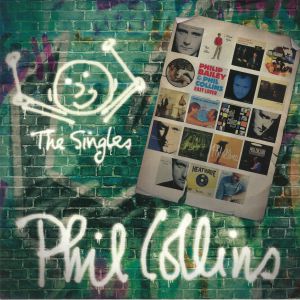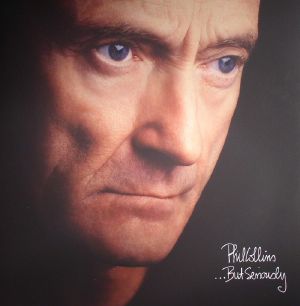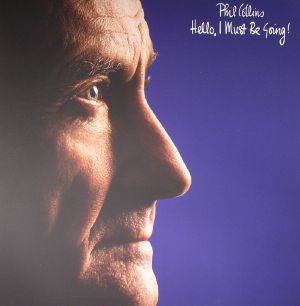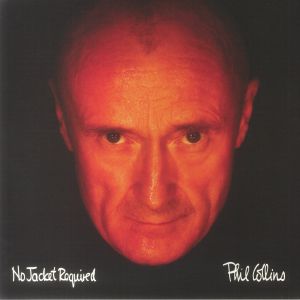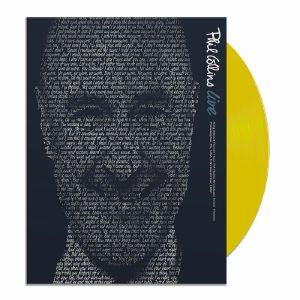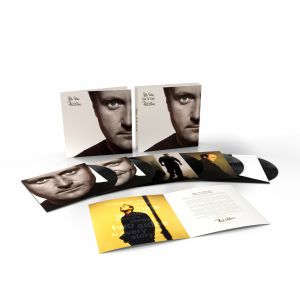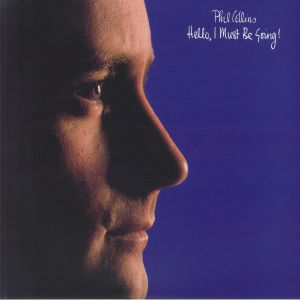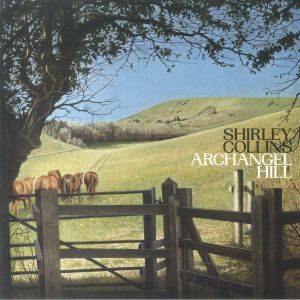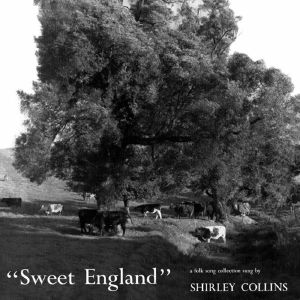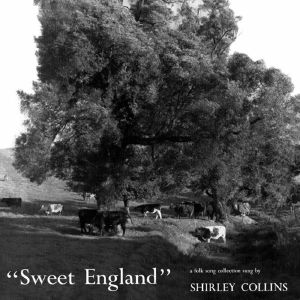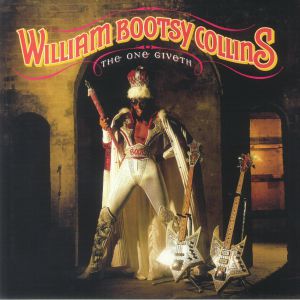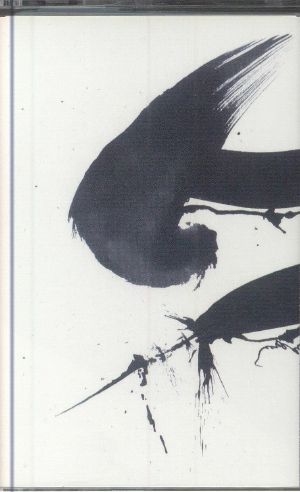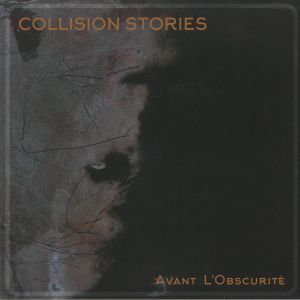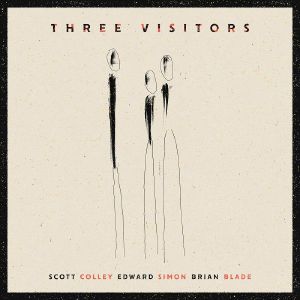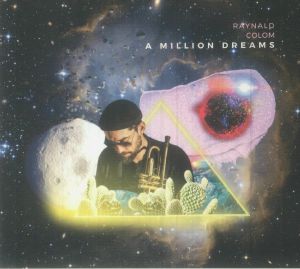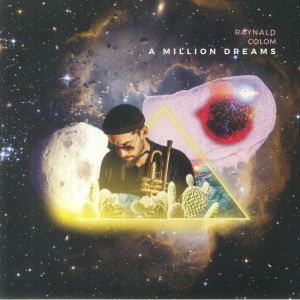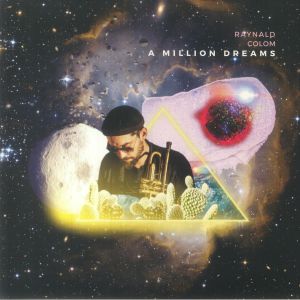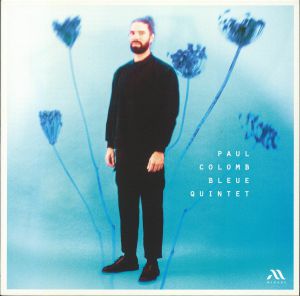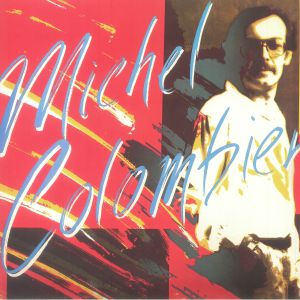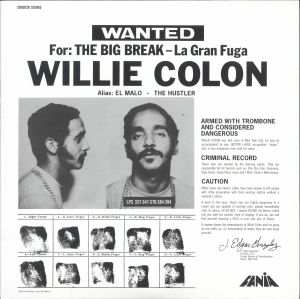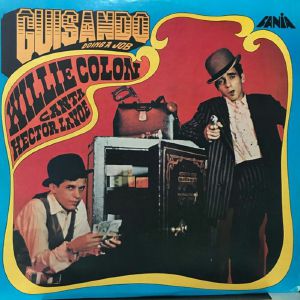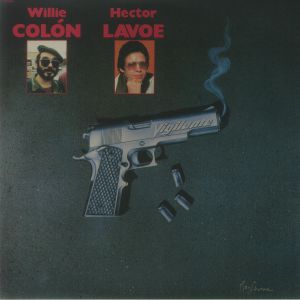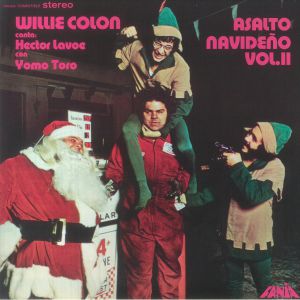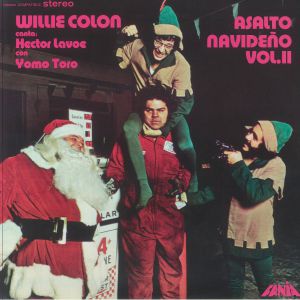Filter
Genre
设备
Release Date
73,105
Not Forthcoming
547
Last Week
1,261
Last 2 Weeks
3,512
Last Month
6,136
Last 2 Months
15,553
Last 6 Months
28,912
Last Year
艺术家
推出标题
价钱
标签
Back catalogue: All genres
Juno's full catalogue of All genres
专辑
in stock $26.49
Blender (Record Store Day RSD 2025) (translucent cobalt blue vinyl LP)
Cat: CR 00876. Rel: 22 Apr 25
Indie/Alternative
in stock $32.41
Here To Eternity (gatefold gold marbled vinyl 2xLP in spot-varnished sleeve)
Cat: FUZF 371. Rel: 09 May 24
Indie/Alternative
Review: Collective Soul - consisting of rockers Ed Roland, Dean Roland, Will Turpin, Jonny Rabb and Jesse Triplett - deliver their latest album Here To Eternity, on the 30th anniversary of their first ever single. The American rock band recorded this latest opus at Elvis Presley's estate in Palm Springs, CA, notably being the only other music artist to ever record at the historical landmark where the Presleys spent their honeymoon. Led by the philogynist's anthem 'Mother's Love', we're met with gnarly blues riffs and aerated, pipe-tubed drumming, amounting to a whopping avowal of a rock n' roll career still carrying on strong.
… Read more in stock $39.18
in stock $29.87
Review: Oltreoceano take a strident second step with Oltreoceano. Made between Italy, France and the US, we've eight tracks here cherrypicked from funk, 70s electronica and spiritual jazz, though the pregnancy of its influences contrast its core themes of absence, longing and invisible threads that bind. Tommaso Cappellato (drums), Nicolo Masetto (bass) and Alberto Lincetto (keys) enlist a further draw of collaborators like Dwight Trible, Mocky, Isaiah Collier and Maylee Todd, ensuring the nostalgic ensemble eidetics of 'Tempo Al Tempo' and 'Alberoni', both of which evoke smoky clubs and panoramic soundtracks, nodding to Azymuth and Umiliani without ever getting peated in reverence.
… Read morePlayed by: ISOUL8 (Volcov), Roberta
in stock $22.54
SWIM (transparent blue vinyl LP + insert + MP3 download code)
Cat: ASIPV 041. Rel: 09 Jun 23
Ambient/Drone
Review: Icelandic musician Gunnar Jonsson Collider debuts on A Strangely Isolated Place with an expansive trip through six fictional environments, brought further to life through an accompanying video by artist Arna Beth. S.W.I.M. is an equal parts trip through space ambient and hauntology; 36 meets Pye Corner Audio if you will. Intense, low-centric 'Environments', 1-6, inspire hazily glimpsed vistas in the mode of ambient warmth. As if accidentally finding oneself witnessing celestial phenomena one isn't meant to witness - the space-trip from 2001: A Space Odyssey springs to mind - each of these tracks are almost like time-locked landscapes, slowed down by their lo-fi temperaments and subby pulses of feeling.
… Read more in stock $26.77
Cat: MOD 005CD. Rel: 23 Feb 23
Jazz
in stock $12.69
Review: Bassist and composer Graham Collier's Down Another Road is a real piece of British jazz history. It was recorded live in 1969 at Stockholm's Jazz Day festival with a superstar six-piece band featuring jazz heavyweights Harry Beckett, Stan Sulzmann, Karl Jenkins and John Marshall. This recording has never been released before while an OG will cost over 200 pounds, such is its cult status. It is said to be his best album by fans who know and it has lots of highly melodic tunes with pop themes, 60s groove and on-point drumming. On this version, the abstract 'Danish Blue' is replaced by the free jazz epic 'Burblings for Bob'.
… Read more in stock $23.39
Review: Isaiah Collier, a Chicago-based multi-instrumentalist and composer, channels ancestral spirits on the transcendent Parallel Universe. Known for pushing jazz boundaries, Collier's saxophone mastery and compositional depth redefine the genre here as Parallel Universe marks a pivotal moment in his career as he embraces the live recording's risk and vulnerability. Reflecting on the improvisational essence of classic jazz, Collier honours musical predecessors in style here. The album features gospel soul singer Jimetta Rose, AACM's Corey Wilkes, blues-rooted guitarist Michael Damani, and collaborators Julian Davis Reid, James Russell Sims, and Micah Collier. Across eight tracks, a great understanding between them all really shines through.
… Read morePlayed by: Juno Recommends Broken Beat Nu Jazz
in stock $26.22
Review: Multi-instrumentalist and composer Isaiah Collier connects with divine ancestors on a transcendent Direct-To-Disc session, Parallel Universe. The Chicago-based innovator and educator is heard to open up new dimensions in the jazzwise continuum on this LP; a saxophonist by trade, his multi-instrumental talents and compositional prowess have thus far stretched the limits of the form, and Parallel Universe once again embraces the risk and vulnerability that is oh-so-native to the live process he knows all too well. Featuring gospel soul singer Jimetta Rose, AACM and former Art Ensemble of Chicago trumpet player Corey Wilkes, blues-rooted guitarist Michael Damani, regular collaborators Julian Davis Reid, James Russell Sims and Micah Collier, the eight-track album bristles with a sense of love and understanding between players at the top of their game.
… Read morePlayed by: RUSTAM OSPANOFF., Juno Recommends Broken Beat Nu Jazz
in stock $33.81
in stock $33.81
in stock $24.53
Cat: 752951 4. Rel: 27 Feb 25
Broken Beat/Nu Jazz/Nu Soul
in stock $16.63
Djesse Vol 4 (Deluxe Edition) (gatefold 2xLP)
Cat: 752951 7. Rel: 27 Feb 25
Broken Beat/Nu Jazz/Nu Soul
Review: You will be hard-pushed to find a more eclectic record than this as it collides folk, samba, glittering pop, doom metal and rap with plenty of broken beats. DJESSE Vol. 4 concludes Jacob's thrilling series and was again crafted in his iconic home studio and around the world as a way of encapsulating his most vivid dreams. The unclassifiable music blends a spectrum of emotions into a joyous celebration of collective awakening and human potential and this deluxe edition includes four new tracks featuring collaborations with stars like Shawn Mendes, Stormzy, John Mayer, Lizzy McAlpine, Kirk Franklin, Brandi Carlile, Lawrence and Michael McDonald.
… Read more in stock $41.71
in stock $40.02
in stock $35.23
Review: Recorded in Stockport and Stockholm between 2016 and 2017, Jon Collin's The Nature is still just as beautiful more than half a decade on. Captured inside and outside, "with and without electricity", on the face of it this is a collection of captivating slide guitar improvisations that feel altogether timeless. Tunes that were born in a specific moment, but could have been conceived in countless others. That's all very impressive, but in many ways what really makes The Nature so enthralling are the minutiae, the imperfect details, ambient noises that were captured during the process of these tunes being laid down. Those elements add a three dimension quality to the listing experience, rendering the work and artist in vivid detail, transporting us to the times and places this project came from.
… Read more in stock $25.92
Played by: M50
in stock $30.72
in stock $25.08
in stock $20.58
Review: 'Girl Like You' hitmaker and former Orange Juice frontman Edwyn Collins has written some absolute corkers in his time and against all the odds - he's been through the wars with his health - is on life-affirming form still. This is his tenth solo album and, like his previous album Badbea, it was recorded in the beautiful Clashnarrow Studios in the Highland village of Helmsdale. The setting clearly a productive space as there's tunes on here that sit right up there with Collins' best work. 'The Heart Is A Foolish Little Thing' is a masterpiece so good it will likely either inspire budding songwriters or make them give up because they know that's the level to get to and it feels untouchable. 'Strange Old World' is another standout, with a bit of a darkly atmospheric Tarantino vibe. And ' The Mountains Are My Home' delves into more traditional folk and feels incredibly heartfelt, like we're being welcomed into Collins' home for tea.
… Read more in stock $12.69
in stock $24.80
in stock $16.90
in stock $29.30
in stock $32.41
in stock $27.04
in stock $35.80
in stock $40.02
in stock $27.91
No Jacket Required (limited crystal clear vinyl LP)
Cat: 060349 7837069. Rel: 06 Jul 23
Progressive Rock
in stock $16.90
in stock $17.76
Both Sides (All The Sides) (30th Anniversary Deluxe Edition) (180 gram vinyl 5xLP + booklet in spot-varnished slip-case)
Cat: 060349 7825905. Rel: 19 Sep 24
Progressive Rock
Review: To commemorate the 30th anniversary of Phil Collins' fifth solo studio album, Both Sides, a special edition 5XLP box set is set for release. This deluxe reissue, features the remastered original album, cut at half-speed by Miles Showell at Abbey Road Studios. Both Sides (All The Sides) includes early demo tracks, rarities from singles like 'Both Sides of the Story,' 'Everyday,' and 'We Wait and We Wonder,' as well as live performances such as 'Can't Turn Back the Years' and 'Both Sides of the Story' from Collins' MTV Unplugged session. This collection is presented on vinyl for the first time, housed in a slipcase with picture sleeves and a 16-page booklet containing newly written liner notes by esteemed journalist Michael Hann. Collins, who wrote, performed, and produced Both Sides in just six weeks at his home studio, considers it his most personal album. Originally released in 1993, the album topped the charts in the UK and Europe, reached No. 13 in the US, and achieved multi-platinum status worldwide.
… Read more in stock $112.77
Hello I Must Be Going! (Atlantic Records 75th Anniversary Edition) (gatefold 180 gram audiophile vinyl 2xLP)
Cat: 753088 751271. Rel: 06 Feb 24
Progressive Rock
Review: On his first solo album, 1981's Face Value, Genesis drummer-singer Phil Collins showed that he wasn't about to be left behind in the mire of classical-rock sludge. That LP boasted shorter songs and demonstrated that Collins had a true pop sensibility. Hello, I Must Be Going! continues that trend, with albeit some familiar patterns emerging, wrote Rolling Stone's John Milward; indulging a trend-bucking golden-oldie route, iridescing a rich luster of the classic rock old-school. This Analogue Productions (Atlantic Series) reissue of Hello, I Must Be Going! has the essential elements that make it a standout for your collection. First, the label turned to Chris Bellman at Bernie Grundman Mastering to cut lacquers from a 1/4" EQ'd Dolby tape copy of the original master. Pressing on 180-gram vinyl is by Quality Record Pressings and RTI, the album comes housed in tip-on old style gatefold double pocket jackets with film lamination.
… Read more in stock $77.50
Archangel Hill (limited green vinyl LP + insert + MP3 download code (indie exclusive))
Cat: WIGLP 494X. Rel: 25 May 23
Folk/Americana
Review: The ninth album by English folk singer Shirley Collins, Archangel Hill, comes as a collection of traditional songs from England, Ireland, Scotland and America. Collins breathes fresh, reanimatory, magic vocal dust into the songs, with her distinctively breathy voice once more imbuing a collective energy into the English folk revival styles of the 1960s and 1970s... and now, perhaps, the 2020s. It's her debut for Domino, who describe Collins as one of the most important voices in the folk revival scene. Naturally, this means Collins' selections reflect her deep knowledge of folk song, with some tracks like 'Hares On The Mountain' widely known among the public, while others are sourced from close personal friends and relatives.
… Read more in stock $28.75
in stock $33.81
in stock $14.38
One Giveth The Count Taketh Away (reissue) (limited numbered 180 gram audiophile gold vinyl LP)
Cat: MOVLP 3262C. Rel: 23 May 23
Funk/Reissues
in stock $32.98
The Devil & The River Volume 1 (hand-numbered cassette limited to 100 copies)
Cat: KR 112. Rel: 29 Aug 24
Ambient/Drone
in stock $13.24
in stock $32.41
in stock $24.80
in stock $12.69
in stock $34.67
A Million Dreams (gatefold 180 gram hand-numbered translucent orange marbled vinyl 2xLP limited to 200 copies)
Cat: SRAR 0015ME. Rel: 11 Dec 23
Jazz
in stock $44.25
in stock $21.98
in stock $25.65
La Gran Fuga: The Big Break (reissue) (limited 180 gram vinyl LP + poster)
Cat: 725603 4. Rel: 11 Apr 24
International
Review: Craft Latino's vinyl reissue of Willie Colon and Hector Lavoe's 1970 album La Gran Fuga is a welcome revival of one of Latin music's most iconic collaborations. Newly remastered and pressed on 180-gram vinyl, this release allows listeners to experience the brilliance of Colon and Lavoe's sixth album in all its glory. With classics like 'Barrunto,' 'Pa' Colombia,' and 'Abuelita,' 'La Gran Fuga' presents the duo's unparalleled creativity and commercial success. Backed by a talented lineup of musicians overseen by Johnny Pacheco, Colon and Lavoe push the boundaries of salsa music, incorporating diverse musical traditions and delivering dance-floor hits alongside emotive ballads. The album's iconic cover art, featuring Colon's "Malo" alter-ego in an FBI wanted poster, adds to its cultural significance. Despite initial controversy, La Gran Fuga became a massive success, earning the duo their second Gold certification and solidifying their place in Latin music history. Retrospectively praised as "essential music" and lauded for its confidence and flexibility, La Gran Fuga remains a shining emblem of the Colon/Lavoe musical aesthetic. As listeners revisit these timeless tracks, they're reminded of the duo's remarkable talent and enduring legacy.
… Read morePlayed by: Juno Recommends International
in stock $37.49
in stock $36.92
in stock $30.42
in stock $36.92
Asalto Navideno Vol II (reissue) (limited 180 gram green vinyl LP + insert)
Cat: 888072 426931. Rel: 22 Nov 24
International
Review: The celebration of this series continues with a reissue of the second installment of the legendary Christmas salsa album. Willie Colon and Hector Lavoe returned here to bring the unique sounds that made Volume I a Latin music classic. For this one, Colon and Lavoe were joined by renowned cuatro player Yomo Toro and legendary percussionists Milton Cardona and Jose Mangual Jr. Together, they crafted salsa versions of beloved Puerto Rican Christmas songs while mixing traditional musica jibara with Cuban guaguanco, son montuno and African-American jazz. It delivers on all fronts with vibrant, festive blends that bring real Puerto Rican authenticity to salsa fans worldwide.
… Read more in stock $38.05

 USD
USD





